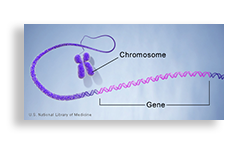Inflammation Shows Up in Plasma of People with FM
Unique Cytokine Signature in the Plasma of Patients with Fibromyalgia.
 A scientific paper authored by J Sturgill, et al recently published in the Journal of Immunology Research discussed fibromyalgia, a chronic pain syndrome with a complex but poorly understood pathogenesis affecting approximately 10 million adults in the United States. The lack of a clear etiology in FM has limited the effective diagnosis and treatment of this debilitating condition. The objective of this secondary data analysis was to examine plasma cytokine levels in women with FM using Bio-Plex Human Cytokine 17-plex Assay. Post hoc analysis of plasma cytokine levels was performed to evaluate patterns that were not specified on a priorii (theoretical deduction rather than observation).
A scientific paper authored by J Sturgill, et al recently published in the Journal of Immunology Research discussed fibromyalgia, a chronic pain syndrome with a complex but poorly understood pathogenesis affecting approximately 10 million adults in the United States. The lack of a clear etiology in FM has limited the effective diagnosis and treatment of this debilitating condition. The objective of this secondary data analysis was to examine plasma cytokine levels in women with FM using Bio-Plex Human Cytokine 17-plex Assay. Post hoc analysis of plasma cytokine levels was performed to evaluate patterns that were not specified on a priorii (theoretical deduction rather than observation). Upon examination, patients with FM exhibited marked reduction in T(H)2 cytokines such as IL-4, IL-5, and IL-13. The finding of this pattern of altered cytokine milieu not only supports the role of inflammation in FM but also may lead to more definitive diagnostic tools for clinicians treating FM. The TH2 suppression provides strong evidence of immune dysregulation in patients with FM.
NOTE: This study supports the findings of Bruce Gillis, MD, and other researchers at the University of Illinois Chicago, in their research paper “Unique immunologic patterns in fibromyalgia”, published in BMC Clinical Pathology, December, 2012, that resulted in development of the FM/a fibromyalgia diagnostic blood test.






